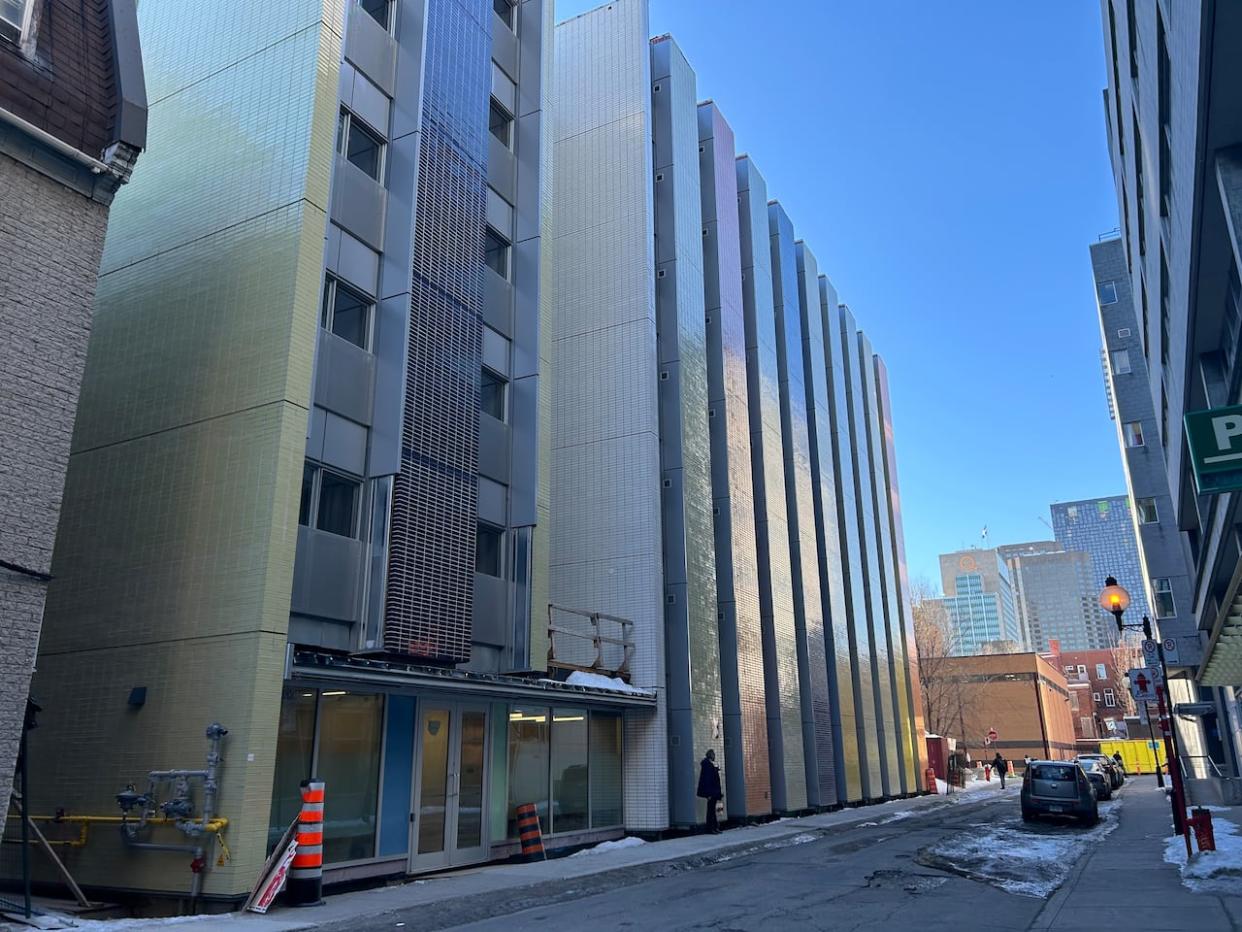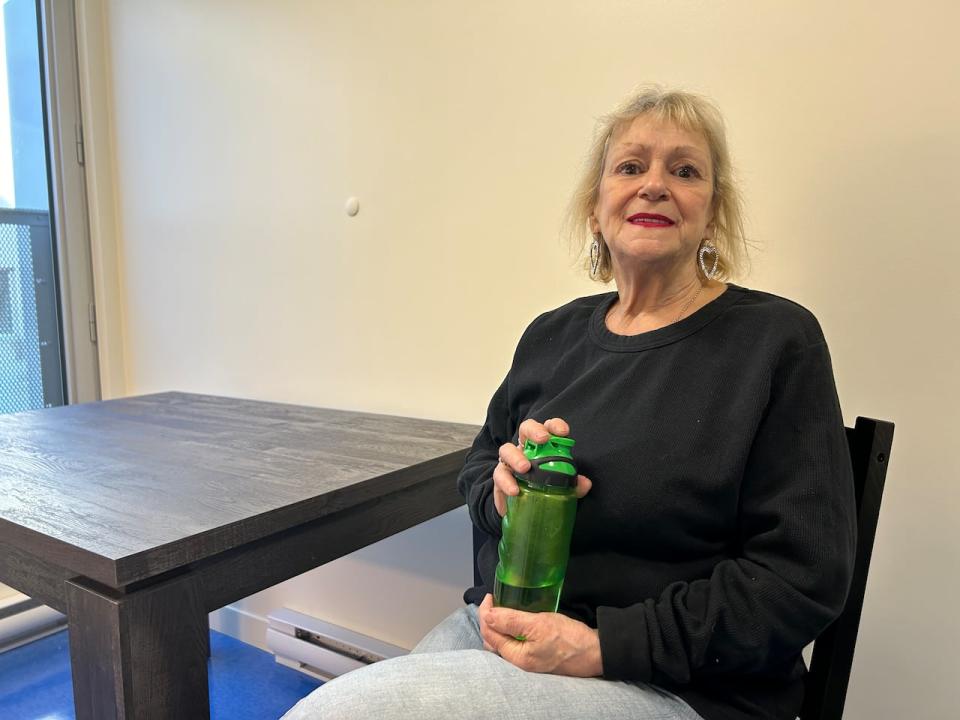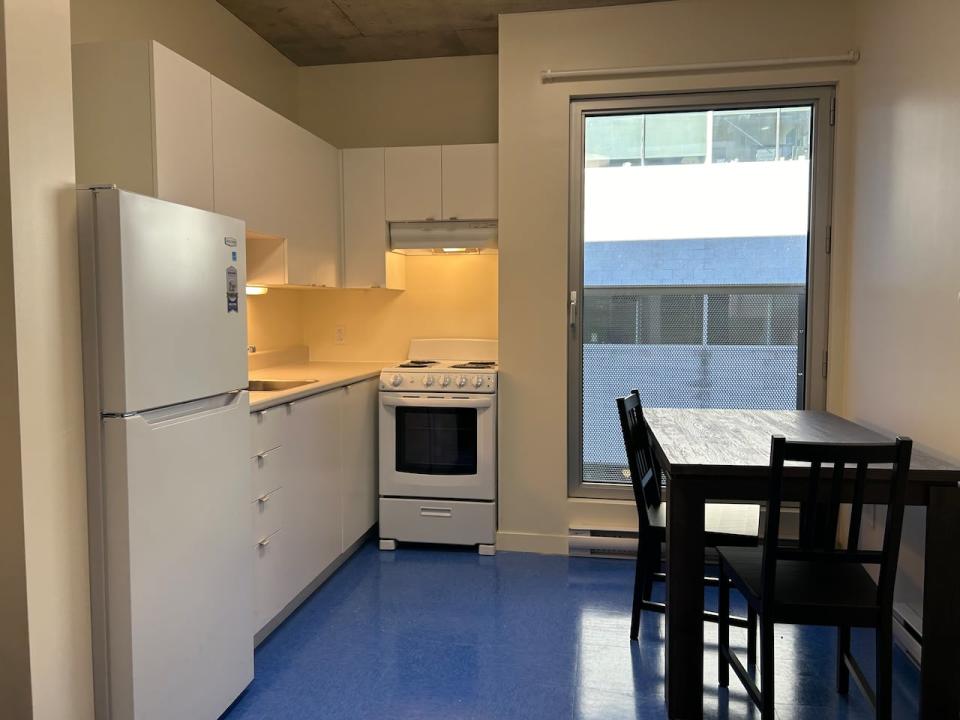Montreal's largest social housing project offers affordable leases to city's vulnerable

Monique Charette says she jumped for joy when she was offered a new place to live after five months in temporary housing on Montreal's South Shore.
"All kinds of people, same as my age, younger, different styles," she said. "I think I'm going to have a beautiful experience."
She's talking about a new social housing complex for vulnerable people that just opened up in Montreal. The province's minister for social services, Lionel Carmant, said Le Christin is the largest housing project to date in the fight against homelessness.
"The more expertise and support that we have for the teams in these establishments, the better it is," he said.
Most of the people staying in the 114 units will pay only a quarter of what they make every month.
Montreal Mayor Valérie Plante, who has long called on upper levels of government to invest more in social housing, has commended the new housing complex.
"I like to think that shelters are like a Band-Aid, but this is like a treatment. This is a long-term solution to support vulnerable people," she said.

Monique Charette is ecstatic to have her own place in downtown Montreal, right in the heart of the city's Quartier Latin. (Rowan Kennedy/CBC)
The building is owned by Montreal's housing corporation, the Office municipal d'habitation de Montréal. The corporation is largely funding the $23.5-million project with the help of the provincial and federal governments.
Accueil Bonneau, a shelter and advocacy group for the unhoused, will staff the building with intervention workers who will provide a range of services. The building is located on Christin Street, between Ste-Catherine Street and René-Lévesque Boulevard.
This is the first time that the organization has been able to offer long-term leases and that it has welcomed such a diverse array of residents. While it does have day services for both men and women, normally the organization's shelter services are for men only.
Residents will be a mix of vulnerable seniors, couples, members of the LGBTQ community or people who went through youth protection.

The apartments are designed for long-term leasing at low cost. (Rowan Kennedy/CBC)
"We think that residential stability, that means being able to stay in your home and not return to homelessness, will have greater success if you have a mix of people living in the building," said Fiona Crossling, executive director of Accueil Bonneau.
"While 80 per cent of Le Christin tenants need psychosocial support, they are much more independent and are ready for something else," said Crossling.
One out of five tenants will not need support. Their co-habitation with vulnerable people makes this project a new model, she said.
"Normal life is diverse," she added.
It's a novel approach that's unproven on a large scale, according to Eric Latimer, research scientist at the Douglas Research Centre, professor in the department of psychiatry at McGill University and co-chair of the Quebec Homelessness Prevention Policy Collaborative.
"It's an awful lot of people who have generally been pretty close to street life to put together in one building. There are some risks with that," he said.
However, officials with Accueil Bonneau contend they have spent months interviewing potential residents like Charette to make sure they will be the right fit.
The organization will also carry out a research project to measure the impact of this innovative model on the social re-affiliation of individuals who have experienced homelessness.
The study will be conducted by Latimer, according to a news release from Accueuil Bonneau.
"Homelessness causes a great deal of suffering in our society, and it is our responsibility to unite and combat this scourge." says France-Élaine Duranceau, Quebec's housing minister, in the news release.


